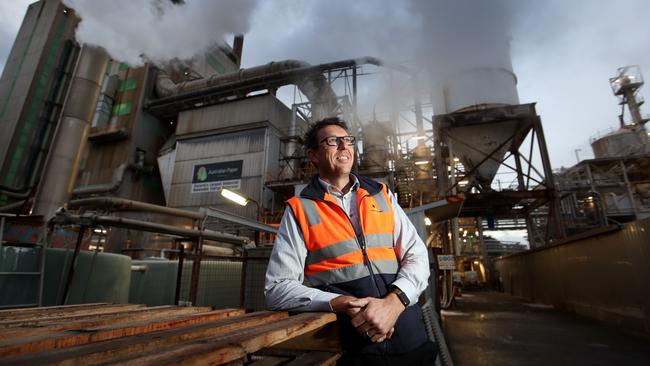Industry begs for gas export clamp
Manufacturers are demanding the federal government pull the trigger on laws to limit the export of liquefied natural gas.

Manufacturers are demanding the federal government pull the trigger on laws to limit the export of liquefied natural gas after the competition watchdog warned that more factories could close if gas prices don’t start to fall.
The Australian Competition & Consumer Commission’s latest report into the east coast gas market, released yesterday, found that high gas prices remained a “critical” issue for industrial users.
The findings came just days after US industrial giant Dow Chemical cited high gas prices as a factor behind its decision to close its Altona manufacturing plant in Victoria.
Sydney coffee cup manufacturer RemaPak and Queensland brick and paving manufacturer Claypave have both collapsed into administration in recent months, with rising gas costs contributing to their demise.
Manufacturing Australia chief executive Ben Eade told The Australian that the time had come for the government to exercise the Australian Domestic Gas Security Mechanism, which allows for the limiting of LNG exports if there is a shortfall of supply to domestic markets.
Mr Eade noted that the ADGSM was legislated and enjoyed bipartisan political support.
“For goodness sake, trigger it,” Mr Eade said. “This is absolutely urgent.”
Manufacturing Australia’s members include Bluescope Steel, fertiliser company Incitec Pivot and packaging company Orora.
Any move to limit LNG exports would hurt the three plants in Queensland, namely the Santos-led Gladstone LNG, Origin Energy and ConocoPhillips’ Australia Pacific LNG, and Royal Dutch Shell’s QGC LNG.
Mr Eade said rising energy costs on the east coast were not only jeopardising existing industries but were making it extremely difficult for investment in new factories and even maintenance of existing plants to stack up.
“It’s taken some time for people to acknowledge the depth and the severity of the problems on the east coast gas market but it seems pretty self-evident now that you do have plants closing and others obviously threatened,” he said.
“These aren’t ambit claims; these are real and deep structural concerns in the gas market on the east coast.”
In Victoria’s Latrobe Valley, the state’s largest industrial consumer of gas, Australian Paper, is preparing to invest in a new $600 million waste-to-energy plant that will slash its exposure to gas markets.
The plant will burn more than half a million tonnes a year of household waste, cutting its gas needs by around 60 per cent.
Craig Dunn, general manager of communications and sustainability at Australian Paper, said gas prices had risen by between 250 and 300 per cent in recent years, which would leave the plant heavily exposed once its existing supply contracts expired. “We have already experienced gas increases and expect significant further gas increases into the future, so we need to stabilise our long-term energy position. The increases are too large for us to absorb.”
While Australian Paper has taken action to protect itself from rising gas costs, Mr Dunn urged the government to act. “Certainly anything that the government can do to stabilise gas pricing and increase available volumes is obviously important,” he said. “The reason we are pursuing energy from waste is we need to act now and we do believe the gas crisis is going to be an ongoing issue.”
Mr Eade called on the NSW and Victorian governments to stop resisting the development of new gas resources. He urged the states to follow the lead of Queensland and open up new areas for exploitation, on the condition that gas is reserved for domestic customers only.
“Any way you look at it, over the medium term we need more gas and more gas suppliers to create some more competitive tension in the market,” he said. “The challenge, of course, is that as long as that eludes us — be it moratoriums in Victoria or very slow approaches to development in NSW — the pressure will only mount for more heavy-handed intervention.”

